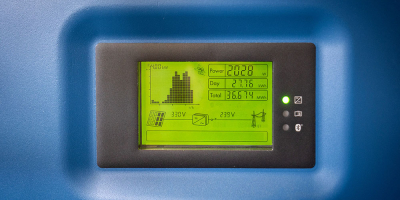
Exploring how smart energy data could better serve the public interest
To view our full project outputs, please visit www.smartenergydatapiag.org.uk.
Project duration: November 2017 to June 2021
Sustainability First, together with Centre for Sustainable Energy (CSE), has convened a work programme to investigate how smart meter energy data could be put to work in the public interest and how this can be balanced against the need for individual privacy and data security.
The data being captured by smart electricity and gas meters being installed in every home and business across Great Britain has the potential to transform our wider understanding of how and when energy is used. In so doing, it could significantly enhance the future design of public policy and market regulation and smarten up the planning and operation of the energy system at national and local scale.
But there are significant and legitimate privacy concerns about whether such data, if accessed without a householder’s consent, could reveal too much about individual lifestyles or make people vulnerable to unsolicited marketing by energy suppliers and others. As a result, the government has put in place robust controls on access to the high-resolution data recorded by the meters.
How could we balance the public interest in achieving better societal outcomes and the individual rights to privacy and data security? This question is at the heart of PIAG’s work.
Part 1
A short project overview, followed by a summary of the final report's main findings and recommendations.
Part 2
Responses to the report from PIAG members, followed by a general discussion.
Project Description
Phase 1
With research, analysis, stakeholder engagement, and a series of exploratory workshops with the PIAG membership, the first phase of the project, from November 2017 to June 2019, focused on developing an understanding of :
- Public interest principles and data ethics that could apply to smart energy data.
- Potential uses for smart energy meter data which would meet a public interest test.
- How the smart energy data would need to be accessed and analysed to serve these uses.
- Current and potential future arrangements for smart meter data access and privacy protection.
- International experience with smart meter data.
Phase 2
From January 2020 to June 2021, built on this work to set out a practical vision as to how the public interest potential of smart-meter data could best be realised. Through a series of workshops, the project took a deep-dive into four major areas of energy policy likely to benefit from more accuracy and greater granularity of energy consumption-data :
- BEIS energy statistics
- Regulatory evaluations and decisions
- Local area energy plans
- Analysis of heat-use.
For each of these four areas, we examined present data-inputs for energy-usage, available proxies, and the gaps a more joined-up approach to smart-meter data might fill. With this improved understanding of the ‘additionality’ that smart-meter data could bring to public policy, PIAG has proposed six major recommendations for government, Ofgem and other energy sector actors. These can be found in the final Phase 2 report, published in May 2021.
For more detail about the project including the stakeholders involved and the stimulus papers, research notes and other outputs from the project, please visit the project micro-site at www.smartenergydatapiag.org.uk
PIAG membership includes representatives of
*Denotes funding partner


